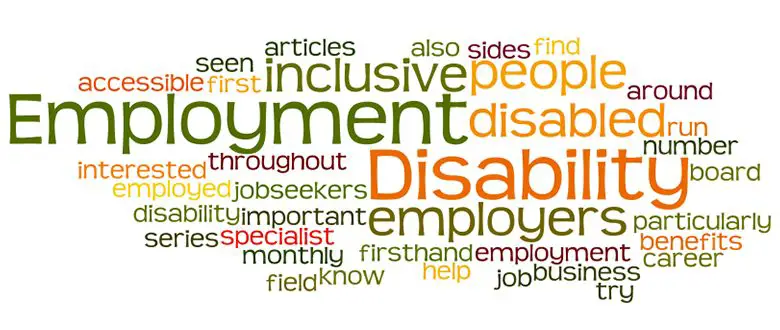
Employment and Disability: why should I employ you?
Jane Hatton, who manages Evenbreak, a not-for-profit job board run by disabled people for disabled people, publishes her monthly article on the subject of employment and diversity.
#DHgurus
If you were going to sell a car, you would need to find out all its good points and then talk to the prospective buyer about those. Maybe it has a fuel-efficient engine, heated seats, low mileage, or perhaps it’s a popular colour. It’s the same with people. In order to “sell” our skills, talents, qualities and abilities to prospective employers, we need to know what they are. And I would put money (if I had any) on you having far more marketable skills than you had ever thought of.
Just for fun, and to humour me, write down somewhere (you don’t have to show anyone) the skills and talents you have that might be attractive to employers. Go on – do it now, and come back when you’ve finished.
Back? OK, how many did you think of? Ten? Twenty? Fifty? Not even close. Let’s look in much more depth at the skills you were born with and have developed since then.
New piece of paper (or new word document, or however you are comfortable capturing this information). First of all, write down every job you have ever done. Work experience at school, part time job at college/university, helping someone out in the school holidays, every paid job, unpaid job, voluntary job, part time or full time that you have ever done. Now, against each one, what skills did you learn or develop while you were there? So, for example, I worked as a waitress in a hotel in the holidays between school and college. Two months, full time. In 1976! I learned so much – dealing with customers, working as part of a team, taking pride in offering a good service, taking orders, communication skills and many more. I’ve never been a waitress since, but all those skills have been used and further developed in other jobs. So, for each job, what skills did you learn?
Then think about things you do and have done outside of work. Neighbourhood watch committee? Parent/teacher association at your children’s school? School governor? Religious activities? Lobbying group? Write all of those down and again, the skills you learned next to each.
And then what about hobbies? Do you know a lot about history? Play a musical instrument? Coach a junior sports team? Dance? Act? Paint or draw? Write them all down – things you do now and things you used to do.
Next, write down all the general skills you have – things you are good at and enjoy doing. This could be anything from practical skills like making and mending things, sewing, gardening, cooking, DIY, to things like organisational skills, problem solving, design, research, technology, writing, planning, motivating and many more. What are your skills? Write them all down. How big is your list now? And there’s more …
Now think about knowledge. This includes formal knowledge from school, or college or university, and also any short courses you might have done. If you’ve lived in other countries, or travelled, you may have knowledge of foreign languages or cultures. You may have an interest in mechanics or local history or classical music. Capture these on your list.
Most importantly (and the bit that most people forget), list your personality traits that would be attractive to an employer. As an employer myself, I want to work with people who are positive, friendly, helpful, conscientious, flexible, reliable, loyal, work well with people and on their own, enjoy learning new things and come up with good ideas. Do you have some or all of these traits? Write them down.
And finally look back at this article – what particular skills have you developed as a result of being disabled? Add all of those to your list too.
It’s a good idea to also ask some people you trust what skills they think you have – they are bound to mention things you hadn’t thought of – perhaps you are a good listener, a loyal friend, very reliable, a creative thinker? Add those to your list.
So. How long is your list now? Much longer than the first one, I suspect. Whether or not you are working at the moment, take a look at this list – full of talents, skills, strengths, personality traits, knowledge and experience that you have to offer an employer. If you are applying for work, pick out the talents from this list that are relevant to the job you are going for, and make sure to mention them on your CV and in your interview. You have more to offer than you ever realised. Be proud of that, let that knowledge boost your confidence, and make sure people know just how valuable you are.
By Jane Hatton
Check out…
• Building a business around your disability
• Employment and disability: doing the obvious in 2015!
• Employment and disability: advantages of being disabled
Get in touch by messaging us on Facebook, tweeting us @DHorizons, emailing us at editor@disabilityhorizons.com or leaving your comments below.